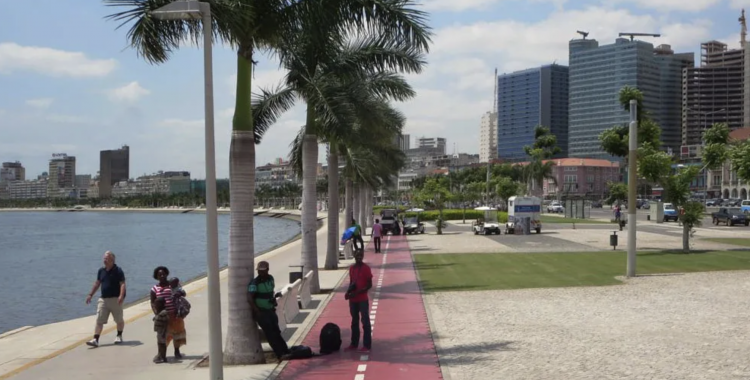"In a usual situation, the agitation and tension that was felt in the months preceding the general elections of August 2022 in Angola, would have given way to the normality and peaceful functioning of the institutions until the next electoral act, to take place in 2027", says the Study Center for Economic and Social Development of Africa (Cedesa) in an analysis, which Lusa had access to.
But that is not what happened after the 2022 elections in Angola. "The strong cleavages that were felt and that kind of almost global contention that existed until August does not seem to diminish, creating a situation of constant aggression, with no end in sight in the present system", says the group of academics.
With the ruling party, the Popular Movement for the Liberation of Angola (MPLA) feeling "embarrassed in carrying out its announced reforms".
For Cedesa, "it is as if the party were not one, but two parties".
"A party mass is dissatisfied with the proposed changes, they wanted João Lourenço to be just a more skillful manager than José Eduardo dos Santos, but not to introduce fundamental reforms, another sector wants effective reforms to be taken and feels uncomfortable with the eventual slowness of these reforms. They are aware that without a profound reformist process, Angola could become a state with no future".
Thus, the group of academics considers that there is currently "a strong instability" in Angola, for different reasons, and "in the parties that form the support of the political system".
With this scenario, "the National Assembly does not seem to be a deliberative chamber of the nation's feelings, but a mere stage of a wider dispute, becoming a means and not an end, removing the sovereign weight that would be inherent to it".
As if this were not enough, Cedesa adds that justice appears "with a more frightening record", underlining that "what is the basic pillar of a Democratic State of Law offers more doubts than certainties".
"In the fight against corruption, with honorable exceptions, the judicial system has been guided "by inefficiency and slowness, not realizing where this structuring program of the State is heading", he stressed.
Also because, in Angola, "an American [Supreme] court was thought of to function in Portuguese style".
And a "light structure that only dealt with a small number of cases was faced with the task of being a regular court of appeal for a myriad of cases". Which, in Cedesa's opinion, "could only have a bad result, as it did".
In addition to "the dysfunctionality of the constitutional design", Cedesa refers that it has been understood in Angola that the judges of the Supreme Court "do not have the adequate preparation to deal with the complexities of economic and financial crime", because they have not throughout his career, with these issues "at the sophisticated level at which they have been appearing" and this, "has led to some highly criticized decisions and great procedural delays".
Therefore "this whole situation, a little diffuse, but whose signs abound, could turn the country into an anocracy", says Cedesa, defining the concept as "an unstable regime, which combines elements of authoritarianism and democracy" and warns that " existence of an anocratic situation increases the likelihood of civil war".
"A new historical cycle with a new structure is essential", reinforce the academics, arguing that the first measure "is to establish a new constitution", because the current one, from 2010, "is not consensual and, to a certain extent, is a mistake legal system designed to please the personal desires of José Eduardo dos Santos", he considers.
Therefore, "the fundamental thing will be to propose a new constitution that is more Angolan and more protective of the institutions, which marks a new beginning", he points out.
For Cedesa, "this new Constitution should address aspects as different as the possibility of separate election (direct or indirect) of the President of the Republic, giving him his own legitimacy and guaranteeing that the President presents himself as a national leader and not a leader partisan".
In addition, the country's Fundamental Law should "allow for the creation of a second legislative chamber composed of traditional authorities [allowing for the introduction of different and plural voices in the legislative process, recovering African culture], the introduction of mechanisms of militant democracy, such as has the German fundamental law", he suggests.







